VOL. 39 | NO. 31 | Friday, July 31, 2015
Five questions for Nashville's mayoral candidates
By Holie Deese
In the more than 50 years under metro-politan government, Nashville has had only one one-term mayor. When the original limit was three terms, both Richard Fulton and Beverly Briley served 12 years. All the rest served two, four-year terms except Bill Boner, who did not seek re-election.
So when there is a changing of the guard – Nashvillians vote for a new mayor on Aug. 6 – the choice seems more important than ever.
“Every time we come to a change like this there always seems to be a lot on the line,” says Pat Nolan, a former political reporter who is now a senior vice president with DVL Seigenthaler, A Finn Partners Company.
“And maybe more so now because of Nashville’s prominence and growth. The future is coming up on us now, and the decision has to be made.”
Nolan says he has voted in every Nashville mayoral race since 1971 and has never seen seven candidates in a field that were all financially viable heading into the election, despite each spending several hundreds of thousands of dollars or more already.
“Usually when you have that many candidates in a field, [for some of them] their money dries up during the race,” he says. “That is not what happened this time. I have never seen that in Nashville before.
“There is nobody who is funding their whole campaign with their own funds, but some have been able to augment with their own money, which has certainly helped some of them to be even more competitive.”
Top issues facing the candidates include education, transit, traffic, affordable housing and growth, with a few (Howard Gentry, David Fox) talking about violent crime, as well.
Nolan says a runoff is likely, and from there it will depend on who has the best get-out-the vote effort when it comes time to cast the final ballot.
“At this point it would appear from most of the polling that has come out that Freeman may be the frontrunner, but that doesn’t mean he is the winner because no one will get 50 percent,” Nolan says. “There seems to be a bit more competition for second place.”
But the field remains wide open, with no one willing to bow out and throw support behind another candidate, thanks in part to the amount of financial strength all seven have.
“With Freeman emerging a little bit – he certainly spent the most money, particularly on television – there does seem to be a little bit of a push to get an anyone-but-Freeman candidate into that second slot,” Nolan says.
“Who that is going to be and how that is going to work out, I don’t know. We had a similar situation when Clement was running, and it turned into an anyone-but-Clement. And that anyone turned out to be Karl Dean.”
We asked each of the candidates the same five questions:
- What is the biggest issue facing Nashville’s future?
- How do we manage growth, without impeding it?
- How can we keep up from a technical standpoint?
- How do we fix the traffic issues?
- What is your favorite place in Nashville to take visitors?
Here are their responses:
Megan Barry
Age: 51
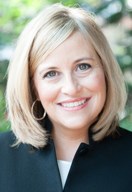
Megan Barry
Occupation: Council member at-large
Education: B.S. Baker University; master’s in business administration, Vanderbilt University’s Owen Graduate School of Management
Resident of: Belmont-Hillsboro
What is the biggest issue facing Nashville’s future?
“I firmly believe that public education is the most important thing our government does and is one of our biggest challenges going forward.
“In Nashville, public education is 40 percent of our Metro budget.
“While we have some bright spots in our public education system, we also have some challenges and there is no silver bullet.
“Strong public schools will be critical to both the success of our children and to the continued growth and economic success of Nashville.
“As mayor, I will bring my experiences as a teacher and as a public school parent along with me to support the great work our teachers and public schools are doing, while also helping to find new ways to innovate and take advantage of opportunities for growth and improvement.
“Early childhood education is a key factor in any great public school system. We know that for every $1 we invest in a high-quality pre-K program, we see a $7 long-term return on that investment.
“As mayor, I will keep Nashville moving forward on early childhood education by working with the director of schools to eliminate the waitlist and ensure that every parent who wants to send their child to pre-K has the opportunity to do so.
“In addition, as mayor, I will appoint a Parent Teacher Advisory Council to ensure that the diverse voices of our parents and teachers are included in conversations about the future of education in Nashville; bring the non-profit community into our schools through increased funding for the Community Achieves program; and address school infrastructure through our capital improvement budget.’’
How do we manage growth without impeding it?
“During the last eight years while Mayor Dean has been in office and I have served as a Council member at-large, we have seen significant economic growth in Davidson County.
“Through a progressive and pro-business government, we’ve crafted policies and legislation that have made Nashville one of the most popular cities in the nation.
“The challenge of the next mayor will be to extend the prosperity of our growth all the way to the county line, while also preventing that growth from degrading our quality of life.
“Strategic growth means ensuring that we are attracting new businesses and jobs to Davidson County, but it also means ensuring that we have a thriving transit system that picks you up where you are and gets you where you need to go; a high-quality education system for every child regardless of zip code; and affordable neighborhoods with neighbors whose voices are a part of the conversation of what changes will occur in neighborhoods.
“Neighborhood change is inevitable. However, as mayor, I will make sure neighbors’ voices are heard through increased neighborhood representation on the Planning Commission and a reenergized Office of Neighborhoods.’’
How can we keep up from a technical standpoint?
“Nashville’s next mayor needs to understand the value of technology in moving Nashville forward. While Metro has been fairly good at investing in security and structural needs, we have not done enough to focus on innovation and new ideas that will drive us forward.
“One way we could address keeping up with our growth technologically is to include Metro’s director of information technology in the Mayor’s Office so we can better integrate technology into our infrastructure and major projects.
“Regarding broadband infrastructure, on the Metro Council, we took proactive steps to recruit Google Fiber to Nashville and will now have greater competition and broadband speeds.
“We can assess after Google Fiber’s implementation whether that will meet the needs of our growing technology industry or if we need to investigate municipal broadband options.
“Finally, we must bring technology into our transportation approaches. I have long advocated for a real-time transit app that will ensure that riders know when buses will actually arrive at points on routes. By increasing the technology of our transit system, we will drive increased ridership and reduce traffic problems.’’
How do we fix the traffic issues?
“I believe that a city that thrives is a city that moves. As Nashville continues to grow, we need to pursue a regional transit view for Middle Tennessee while also addressing our local traffic and transit issues.
“Smarter roads and traffic signals may alleviate some of our traffic problems now, but the long-term solution to our traffic problems will be changing the way we think about transit. We have to start thinking about how to get people out of their cars.
“As mayor, I look forward to working with the Regional Mayor’s Caucus to develop that regional plan.
“In addition, I will bring a bold approach to transportation with a vision for transit rooted in the Mayor’s Office. This Mayor’s Office of Transportation will ensure that any Metro departments dealing with transit communicate with one another so that our sidewalks, bike lanes, and bus routes are connected.
“The improved coordination across departments will also enable us to aggressively compete for federal transportation dollars to invest in everything from sidewalks and bike lanes to buses and light rail.’’
What is your favorite place in Nashville to take visitors?
“Cheekwood Botanical Gardens or the Ryman Auditorium’’
Charles Robert Bone
Age: 41
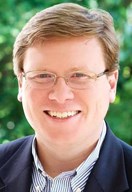
Charles Bone
Occupation: Attorney, entrepreneur, businessman
Education: Goodpasture Christian School (1-12), B.A. Rhodes College. JD Vanderbilt Law School.
Resident of: West Nashville
What is the biggest issue facing Nashville’s future?
“Education. I believe the prioritization of our children must remain Nashville’s most important priority – both during the time when they’re in school and when they’re not in school.
“From education to transit to infrastructure to affordable housing, Nashville’s focus should be on improving educational outcomes for children and employment opportunities for their families.’’
How do we manage growth without impeding it?
“A huge challenge for the next mayor will be to sustain our city’s robust momentum and growth while also protecting the soul and authenticity of Nashville and what makes us unique.
“The next four years must be focused not on growth and development at any cost, but how we achieve thoughtful growth.
“As we make public investments and encourage private investments in our neighborhoods and communities, this needs to be for the benefit of those that are there first and foremost.
“Growth and new development should be for the purpose of stabilizing neighborhoods, not destabilizing them by focusing investments on those that a family requires on a daily basis – grocery stores and restaurants, day-care centers, retail and health care services.
“I want to be mayor because I want to execute on a vision to keep our momentum going in a responsible way, but also diversify that prosperity in all of Nashville.’’
How can we keep up from a technical standpoint?
“Mayor Dean’s administration has taken Nashville to new heights, and we are recognized almost daily with a new national ranking or unprecedented accolade.
“As we move forward, and as our population continues to grow, we must be focused on building schools and equipping classrooms, repairing roads and bridges, and upgrading our sewer and waterlines.
“Essential to our keeping up will be our ability to ensure that we have a modern, well maintained infrastructure.’’
How do we fix the traffic issues?
“As mayor, I will build off of the MTA Strategic Plan to pursue a long-term, bold vision that has been designed by and received the input of thousands of Nashvillians and work to build further consensus amongst our regional leaders.
“We need both an 18-month plan focused on improving our current system as well as an 18-year plan that integrates us with the region.
“It is critical that we have a good, concrete first step that goes corridor by corridor recognizing the uniqueness and needs of each of Nashville’s neighborhoods and communities.
“For instance, we know that Charlotte Avenue with new commercial growth and development looks a lot different than Nolensville Road that has four of the 17 busiest intersections in the city.’’
What is your favorite place in Nashville to take visitors?
“Adele’s is one of my favorite restaurants to share with friends, and I love taking visitors down to Broadway to listen to live music and enjoy the honky-tonks.’’
Bill Freeman
Age: 63
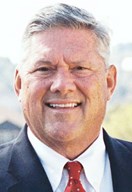
Bill Freeman
Occupation: Chairman, Freeman Webb Co.
Education: attended Metro public schools (elementary, middle), University School of Nashville (high school); attended UT-Knoxville before returning to run the family business.
Resident of: Forest Hills
What is the biggest issue facing Nashville’s future?
“Making sure that the city’s prosperity is shared by all Nashvillians.’’
How do we manage growth without impeding it?
“Create incentives that attract the right kind of development: a mix of upscale and affordable housing and commercial properties. Establish protections for buildings and sites that qualify for historic preservation – which in turn, increases the value of all property around it.’’
How can we keep up from a technical standpoint?
“The city is attracting great young tech workers with our quality of life. The city has aggressively worked to get Google Fiber, which led to Comcast upping its game. This kind of healthy competition involving tech businesses will give our city an edge.’’
How do we fix the traffic issues?
“We have to start on a regional mass transit system. I will start on my first day in office. We will coordinate with MTA, RTA, and the mayors of surrounding counties.
“It will require local, state and federal funding. Meanwhile, we need to make our existing transit more functional for more riders, so that we can begin to persuade commuters to leave their cars at home.’’
What is your favorite place in Nashville to take visitors?
“There are so many. The new Sounds ballpark is a new favorite, and the Ryman Auditorium is just great.’’
Howard Gentry
Age: 63
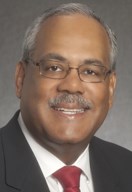
Howard Gentry
Occupation: Criminal court clerk of Davidson County in the 20th Judicial District.
Education: Pearl High School; B.S and master’s degrees from Tennessee State University
Resident of: Bordeaux
What is the biggest issue facing Nashville’s future?
“Curbing violent crime, easing traffic congestion and making public education excellent in every school.”
How do we manage growth without impeding it?
“Nashville needs to be better, not just bigger. I will implement an office of social equity to ensure everyone has a seat at the table. In essence, the OSE will seek collaboration from stakeholders on the front end to avoid controversies that will impede progress.
“For example, if a developer seeks to erect an office tower in Green Hills, the office of social equity will proactively seek input from neighbors, including existing businesses, neighborhood associations, urban designers, planners, advocates for the disenfranchised or those who are not – anyone who has a stake in the matter, to make sure that the proposed development does not negatively affect what is already there.
“Everyone needs to have a say before major decisions are made.’’
How can we keep up from a technical standpoint?
“Our growth must be sustainable. Nashville’s infrastructure is already stretched. It’s the stuff you don’t see like sewer and storm water that we will have to focus on right away to make sure that we can keep up with the growth we have experienced and in the future. General preparedness for this infrastructure, plus making sure our emergency services and our schools can handle the growth is something that will take an experienced leader.
“I have the chops to take that on, having served in both the public and private sector.
“I have served as both councilman at large and vice mayor, and I was chair of the [Metro] budget committee. I know the commitment and political will it takes to make sure we are working on all cylinders.’’
How do we fix the traffic issues?
“Easing traffic congestion is a top priority. Starting Day 1, I will begin working on the easy fixes we can do right here in the city, like working with MTA to make sure the buses are dependable and reliable, urging a downloadable app for our smartphones so that we can all access schedule information and even pay our fare.
“In addition, I will work to expand our circulators, the Green Line and Blue Line, to other parts of the city. These, too, should have information on the downloadable apps.
“Connectivity via our pedestrian walkways and bike lanes must be upgraded and actually connected throughout the city. On the long-term, I will work with our regional leaders, as well as our state and federal lawmakers, to implement a mass transit plan.
“Nothing should be off the table: light rail, monorail, park and ride, more dedicated lanes, all with shared responsibility. And we must start now.’’
What is your favorite place in Nashville to take visitors?
“Depending upon my visitor’s taste, I may take them to one of our many meat and three or hot chicken restaurants, or to one of our many beautiful parks. I also like to take visitors to the Frist Center for the Visual Arts, something I am especially proud of since I serve on its board.’’
David Fox
Age: 53
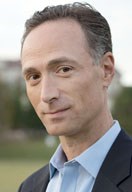
David Fox
Occupation: Investment management (former Nashville director of investment management firm Titan Advisors, and earlier co-founder of NashvillePost.com)
Education: B.S. in commerce from the University of Virginia (1983)
Resident of: Whitland
What is the biggest issue facing Nashville’s future?
“The Nashville Way of life – civility, respect for others, kindness – is being jeopardized by the growth that has been so beneficial to us for decades.
“We must urgently shore up our infrastructure – roads, water/sewer, sidewalks, schools – to support a larger population and do so in a fiscally conservative way.’’
How do we manage growth without impeding it?
“From my 50 years in Nashville, I have seen growth transform our community into a far more interesting and prosperous city. So I don’t advocate building a moat around our city.
“But we must move quickly to ensure we can get around the city in a reasonable amount of time.
“We need to adopt an approach to planning that incorporates the wishes of property owners and encourages density where it is appropriate and protects other areas from over-development.’’
How can we keep up from a technical standpoint?
“Nashville’s technology community is coming into its own, but it struggles to find highly skilled workers in this market.
“By further emphasizing STEM (science, technology, engineering and math) education beginning in middle school, providing tactical assistance to tech employees who relocate here, and tightening the relationship between the Mayor’s Office and the tech community, we can ensure that we do keep up in technology.’’
How do we fix the traffic issues?
“Traffic engineers tell me that if we install state-of-the-art traffic signals that monitor traffic in real time and adjust the timing of stoplights we will maximize the flow of cars and minimize congestion.
“We should explore the possibility of partnering with the railroad companies to privately develop a regional commuter transit system on existing right-of-ways. I am eager to assemble a group of local citizens and have them build a public consensus on what we want transit to look like over the next couple decades, and then we decide what we can afford and how we will pay for it.’’
What is your favorite place in Nashville to take visitors?
“Since my wife Carrington is a restaurant critic, we enjoy taking visitors to some of Nashville’s great restaurants, like La Hacienda, Yellow Porch, City House and Smiling Elephant.’’
Jeremy Kane
Age: 36
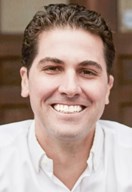
Jeremy Kane
Occupation: Former CEO and founder, LEAD Public Schools.
Education: Masters in public policy from Vanderbilt University, B.A. Stanford University, attended Montgomery Bell Academy on scholarship for high school, attended Glendale Middle School and Granbery Elementary School.
Resident of: I live in Sylvan Park with my wife, Tracy, and our 3-year-old daughter, Wells, in a historic home. This neighborhood has been our home since we married over a decade ago.
What is the biggest issue facing Nashville’s future?
“The prosperity that many in Nashville are experiencing today has been the work of public and private leaders, nonprofit organizations, communities of faith and most importantly individual citizens, but not every neighborhood in Nashville experiences that prosperity fully, and we still struggle with long-standing challenges in our public education, roads and infrastructure, traffic and transit and sustaining affordable growth.
“Our next mayor must give purpose to our current prosperity while ensuring we protect the people and places that have made us who we are today.
“My vision for Nashville is rooted in the values I learned from my father whose ministry was focused on people and community. It’s what guided me as I started and built LEAD Public Schools to transform the lives of not only our students, but our families.
“As mayor, my priority will be to protect our seniors who have contributed to making our city great by ensuring they don’t get priced out of their homes. I will work to make education the most optimistic, collaborative and successful thing we do as a city by ensuring a strong start for our youngest kids, building a secure future and providing a second chance to students and families of all ages so they can build a life in Nashville equal to their dreams.
“I will bring innovation and a fresh approach to building new partnerships both within our city and our region to improve our roads, bikeways and sidewalks while investing in the infrastructure we need to by protecting our aging citizens that have spent their lives making Nashville what it is today, working with our school district to ensure every neighborhood has a high quality public school and ensuring housing and transportation in our city remains affordable for families and seniors alike.
“We have been lucky to be named the “It” city. By making education the most optimistic, collaborative, and successful thing we do and investing in our city’s aging infrastructure, like roads and sewers, and cooperating on long-term regional mass transit solutions, we will continue to earn that claim over the next four years and set us up for continued prosperity over the next forty years.
“My plan highlights four priorities: increasing the local match for the property tax abatement program for seniors struggling with rising property taxes; a rapid response team within his Office of Neighborhoods, non-profits and faith to coordinate resources within government and our non-profit sector and to increase outreach to our city’s growing aging population; increased funding for the Police Department and District Attorney’s Office to prevent, investigate, and prosecute elder abuse; and support for innovative transportation options to help serve the unique challenges of our aging population.’’
How do we manage growth without impeding it?
“Nashville is a place people choose to visit and call home because of our rich heritage. While demands for more housing and office space to accommodate our growing community must be addressed, I believe we can meet those demands with careful planning that both recognizes and respects those pillars, and even on occasion incorporates them in a way that makes the space relevant for generations to come.
“In addition to Nashville’s unique cultural heritage, affordable homes and high quality of life is an important reason so many people call Nashville home.
“We’ll spread growth beyond downtown by targeting incentives for small business development, and job skills training in neighborhoods across the county. We’ll work with local developers to build affordable housing that fits with the existing character and desires of the neighborhood to ensure that no neighborhood is left behind or left out of Nashville’s improvements.’’
How can we keep up from a technical standpoint?
“Utilizing innovative technology is an important part of connecting all of Nashville while improving efficiency and effectiveness of city services and quality of life.
“I will make sure that citizens have an easy way to efficiently communicate with their government, whether reporting potholes or code violations, alerting authorities to elder abuse, finding available parking spaces, or navigating and coordinating road construction or closures.
“Technology is also a valuable tool we can use to connect with each other and other parts of Nashville. As mayor, I’ll create a Music City Card and make it available to all residents, modeled on Oakland’s program that has expanded opportunities for all of the city’s residents.
“The Music City Card will allow residents to include a prepaid debit card on it, add a free or reduced bus pass to help recently released prisoners get to that job interview and a free library card so they can access the Internet and other vital services.’’
How do we fix the traffic issues?
“One of Nashville’s most-pressing challenges is our deteriorating roads and lack of quality, affordable transit options. As mayor, I will engage all communities to improve our regional mass transit system in a collaborative manner so all of our neighborhoods have access to each other.
“We need creative, new solutions, and we need to approach this with a sense of urgency. This issue plays into almost every part of our growth as a city.
“A regional-oriented transit system within our county allows our students to travel to the school of their choice. It allows individuals to access jobs and other opportunities across the county that they can use to build a more secure future for their family. It will also take cars off the road, and reduce traffic for cars that remain, making our city more efficient.
“Nashville needs a visionary, energetic leader with experience in tackling tough challenges with creative solutions.
“As mayor, I will work every day to find creative solutions to tackle Nashville’s toughest long-term challenges.’’
What is your favorite place in Nashville to take visitors?
“I always invite visitors to our home in Sylvan Park. In addition to being an amazing lawyer, mother and community leader, my wife is an incredible cook. Our home and neighborhood offer a microcosm of just some of what makes Nashville unique – a mix of historic and modern homes, community parks and gathering spaces, nonprofits and creative communities, Greenways and bike lanes, independently owned local businesses and restaurants, and most importantly, families connected with the community and with each other.”
Linda Eskind Rebrovick
Age: 59
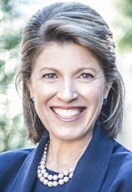
Linda Eskind Rebrovick
Occupation: Former CEO of Consensus Point
Education: B.S. in marketing, Auburn University
Resident of: Hillwood
What is the biggest issue facing Nashville’s future?
“Nashville is facing many significant challenges, including transportation, infrastructure and affordable housing, but improving our education system is priority number one. We’re fortunate to be in the midst of tremendous growth, but we can’t sustain it unless we have a skilled workforce.
“Nashville has the fastest job growth rate in advanced industries among the top 200 Metro areas in the U.S., but we don’t have enough local talent to keep pace with this growth.
“In order to sustain our job growth, we must to do a better job of getting our students ready for college or career training. Careers in advanced industries – such as auto manufacturing, pharmaceuticals and telecommunications – require a post-secondary education, yet only 37 percent of adults in Nashville have this prerequisite. This is the first challenge to address in order to sustain our city’s growth and to raise the quality of life for everyone.
“Equal distribution of technology in schools, expanded afterschool and early intervention programs, and empowering principals to make decisions at the school-level – just to name a few initiatives – will help us overcome this challenge.
How do we manage growth, without impeding it?
“It will be important to address issues such as transit, infrastructure and affordable housing in order to sustain smart growth.
“Our momentum will slow down if we don’t have enough affordable housing for our diverse workforce, and if we don’t make it easier to move around the city, including a more effective mass transit system and expanded multi-modal options. And much of our infrastructure is past due for upgrades.
“We have to tackle these issues while also working with developers, neighborhoods, businesses and Metro departments in order to strive toward a common vision. It’s all about balance.’’
How can we keep up from a technical standpoint?
“I’ve talked a lot about using proven innovations and approaches, combined with bold new ideas, to keep pace with and even become a leader in being a “smart” city.
“We must invest in new technologies that give us returns on investments. We can make our government buildings more energy efficient, we can make our roads a lot smarter and we can empower our students and citizens – all through technology and proven innovations that are working in other cities.’’
How do we fix the traffic issues?
“I produced a 13-page policy book that outlines short-term, mid-term and long-term ideas for improving Nashville’s transit. Readers can review the digital version at www.LindaForNashville.com/Transportation.
“We can immediately speed up traffic and reduce congestion by implementing technology [such as] real-time adaptive sensors on our lights and in our roads. This will be the foundation for creating a smart transit grid that will provide commuters real-time data about traffic, help them find and pay for open parking spots, and help them track MTA buses in real time.
“In the midterm, we must build a more efficient and reliable mass transit system. A significant portion of our workforce needs access to transit late in the evening and early in the morning, so it’s important to expand service, add cross-town service and implement technology that allows users to pay fares and track buses from smartphones.
“Expanding sidewalks and bike paths is also important for getting more cars off the road, reducing CO2 emissions and creating a healthier city.
“We have to start planning and building a regional transit system for long-term success. This will happen in conjunction with short-term and midterm initiatives.
“We know that nearly 40 percent of commuters travel more than 30 minutes to work each day, and as our region continues to grow it will be critical to have an effective regional transit system.’’
What is your favorite place in Nashville to take visitors?
“I love to take visitors to Percy-Warner Park. I think it’s one of Nashville’s more hidden treasures.’’